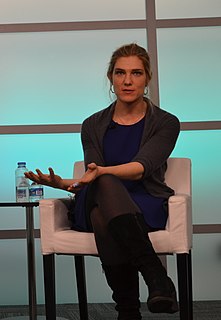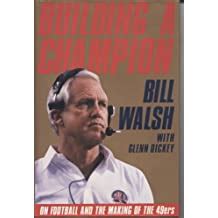A Quote by Andy Jassy
There are certain jobs where you can just as easily, in some cases more effectively, work remotely. If you take an engineer, for example, when they get into the mode of coding, being on their own where they're not distracted or interrupted is very helpful.
Related Quotes
For example, the supporters of tariffs treat it as self-evident that the creation of jobs is a desirable end, in and of itself, regardless of what the persons employed do. That is clearly wrong. If all we want are jobs, we can create any number--for example, have people dig holes and then fill them up again, or perform other useless tasks. Work is sometimes its own reward. Mostly, however, it is the price we pay to get the things we want. Our real objective is not just jobs but productive jobs--jobs that will mean more goods and services to consume.
I know that actors and actresses have a great reputation for being very, very selfish, and in some cases, that's very true. But in the theater I find it doesn't help you to be selfish. You sort of have to be selfless in the theater, and the more selfless you are - that doesn't mean don't take care of yourself - but the more you sort of surrender to the work, I find, the better the work is. That's just my experience.
There's no drama. There's nothing. Everyone is there to work, everyone is really kind and everyone is very helpful, especially to me. I went in there, hoping to learn. I could have easily been put on some project with somebody who really doesn't care about teaching or sharing. But, while I was there, all of the cast were very helpful. I would constantly ask questions.
I've learned from the past that it's important to recharge and get time in-between jobs, and if I can't get time in-between jobs then when I know I've got some time coming up at the end of a job, really try and take advantage of that. And do very mundane things at home and putter in the garden and spend time with family and make music and, you know, play with the dogs. Just get back to being me.
There are certainly lots of jobs in computer coding, but coding doesn't really require advanced mathematics. And engineering jobs, they vary widely in the amount of demand that we actually need. So, you know, the number of people for whom the job description includes Newton's calculus is not perhaps that high.
There is another side [to ego] that can wreck a team or an organization. That is being distracted by your own importance. It can come from your insecurity in working with others. It can be the need to draw attention to yourself in the public arena. It can be a feeling that others are a threat to your own territory. These are all negative manifestations of ego, and if you are not alert to them, you get diverted and your work becomes diffused. Ego in these cases makes people insensitive to how they work with others and it ends up interfering with the real goal of any group efforts.
The way AI complements people's work, it actually creates a lot of new jobs, a lot of demand. For example, if a automatic visual inspection technology helps spot flaws in manufacturing parts, I think that in some cases, this does create a lot more demand for people to come in to rework or to fix some of the parts that an AI has found to be flawed.
My very first records, I was very interested in how you get the particular quality you want out of it, and I began to learn about the engineering and aspects of production and things very early on. I got hands-on with the process and taught myself how to engineer, as opposed to just being a producer who asked the engineer to make it sound nice.
The positive thing about collaborating is that I cannot get distracted by coding work, because I cannot waste the other collaborator's time in the same way as I can my own. And it's always good to learn how the other person works, learn about techniques, learn social things like: how do you communicate with another person? The music I make with other people I'm much more confident about, I'm a little bit less judgemental of the outcome than with my own stuff because I know it's not only me, it's a more outside of me. Sometimes I even like them better than my own tracks.



































